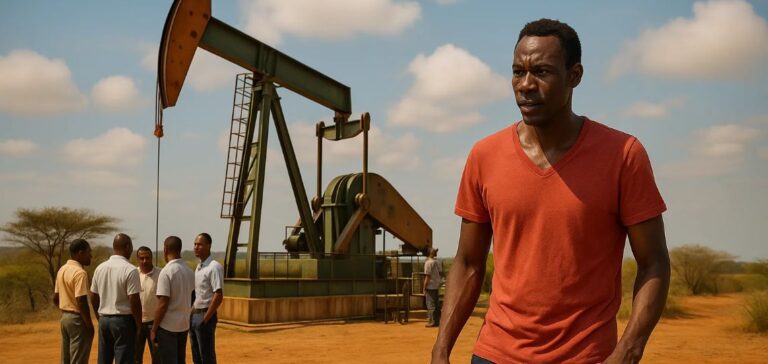British company Tullow Oil Plc announced on 15 April the conclusion of an agreement with Gulf Energy Ltd for the sale of its oil interests in the Lokichar Basin in north-western Kenya. The transaction, valued at a minimum of $120 mn (approximately AED440 mn), includes three successive payments of $40 mn, along with royalty payments. It also features a clause granting Tullow a free 30% stake in future development phases of the project, without any immediate financial commitment.
This partial withdrawal aligns with Tullow Oil’s strategy to refocus on its most profitable assets amid a broader debt reduction plan. By the end of 2024, the company’s net debt stood at $1.5 bn. Once regarded as a major player in African oil exploration, the firm has since divested several of its holdings. The Kenya sale follows the earlier disposal of its assets in Gabon to state-owned Gabon Oil Company for $300 mn at the beginning of the year.
Strategic redeployment and impact in Kenya
In Kenya, the deal comes as national authorities aim to accelerate the monetisation of the country’s oil potential. The South Lokichar field, discovered over a decade ago, remains underdeveloped. According to Tullow Oil’s estimates, the field could hold up to 585 mn barrels of crude and support an initial output of 120,000 barrels per day. However, in 2023, the Kenyan government rejected Tullow’s proposed development plan, delaying the project’s execution.
Gulf Energy and national energy ambitions
The entry of Gulf Energy, a company based in the United Arab Emirates, into the project could expedite its development. This comes amid renewed efforts by Nairobi to build a domestic oil industry, with a new licensing round covering 10 blocks in high-potential areas such as Lamu and Anza. Kenya has drilled 94 exploration wells across nearly 485,000 km² but remains a net importer of petroleum products.
The free participation clause keeps Tullow Oil in a strategic observer position, potentially ready to re-engage if economic and political conditions become favourable. It allows the company to retain access to an emerging market without burdening its current financial structure.





















